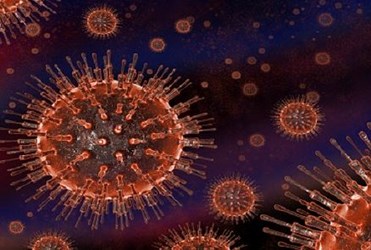Abbott Diagnostic Assay Authorized To Test Whole Blood Samples For Zika Virus

Abbott announced that the FDA has extended the company’s Emergency Use Authorization (EUA) for a Zika virus assay to include use with whole blood samples, making it the only diagnostic to receive such an expanded designation. The assay, which is used with Abbott’s automated m2000 RealTime system, first received EUA in November for use with serum, plasma, and urine, but testing with whole blood is expected to provide a more thorough diagnosis, as the virus can remain in the blood for up to 2 months.
Last week marked the one-year anniversary of the World Health Organization’s (WHO) announcement that Zika was an international health emergency, citing reported cases of Zika-related birth defects in 29 different countries. The Centers for Disease Control and Prevention (CDC) estimates that there are 4,973 cases of Zika reported in the United States and 36,414 in outlying U.S. territories.
Though the outbreak seems to be in a decline, WHO spokesman Ian Clarke urged countries to maintain rigorous surveillance and to continue development of the over 40 vaccine candidates, reported Reuters.
“Diagnosing a Zika infection can be challenging, especially since people might not have any symptoms or only have mild symptoms that last a few days,” said John Hackett, divisional VP of applied research and technology for Diagnostics Products at Abbott, in a press release.
Hackett explained that using whole blood samples in addition to urine, serum, and plasma gives scientists a bigger picture of a person’s possible exposure to the virus, and could identify Zika cases where other tests cannot.
“Abbott’s molecular test may provide the ability to identify the active virus over a longer period with whole blood and could provide a more accurate diagnosis,” said Hackett. “Our test can distinguish Zika from other viruses such as dengue or chikungunya, which helps doctors make informed diagnoses to help people get back to better healthy.”
The m2000 RealTime system is compatible with a wide variety of assays, which allows for consolidated and automated polymerase chain reaction (PCR) testing that reduces instances of human error and improves laboratory efficiency. The Zika assay can provide results in 5-7 hours, and received EUA designation last November for individuals meeting the CDC’s epidemiological criteria, which include residence or travel abroad to regions with active Zika transmission. Other companies to receive EUAs for Zika diagnostics include Siemens, Roche, and Luminex.
In addition to the assay, Abbott is developing a pipeline of other projects aimed at addressing the current Zika outbreak, including a point-of-care diagnostic device commissioned by the Defense Advanced Research Projects Agency (DARPA) and serology tests that don’t cross-react with other tropical disease antibodies.
Though Abbott’s $5.8-billion acquisition of diagnostics company Alere has gone sour and the company has made moves to exit the agreement, analysts believe the deal may still go through following its approval by European regulators last week.
